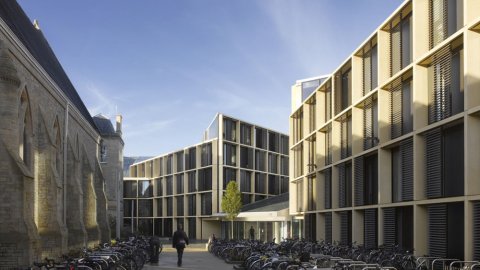It is well known that the theory of differentially closed fields of characteristic 0 has prime models and that they are unique up to isomorphism. One can ask the same question for the theory ACFA of existentially closed difference fields (recall that a difference field is a field with an automorphism).
In this talk, I will first give the trivial reasons of why this question cannot have a positive answer. It could however be the case that over certain difference fields prime models (of the theory ACFA) exist and are unique. Such a prime model would be called a difference closure of the difference field K. I will show by an example that the obvious conditions on K do not suffice.
I will then consider the class of aleph-epsilon saturated models of ACFA, or of kappa-saturated models of ACFA. There are natural notions of aleph-epsilon prime model and kappa-prime model. It turns out that for these stronger notions, if K is an algebraically closed difference field of characteristic 0, with fixed subfield F aleph-epsilon saturated, then there is an aleph-epsilon prime model over K, and it is unique up to K-isomorphism. A similar result holds for kappa-prime when kappa is a regular cardinal.
None of this extends to positive characteristic.


